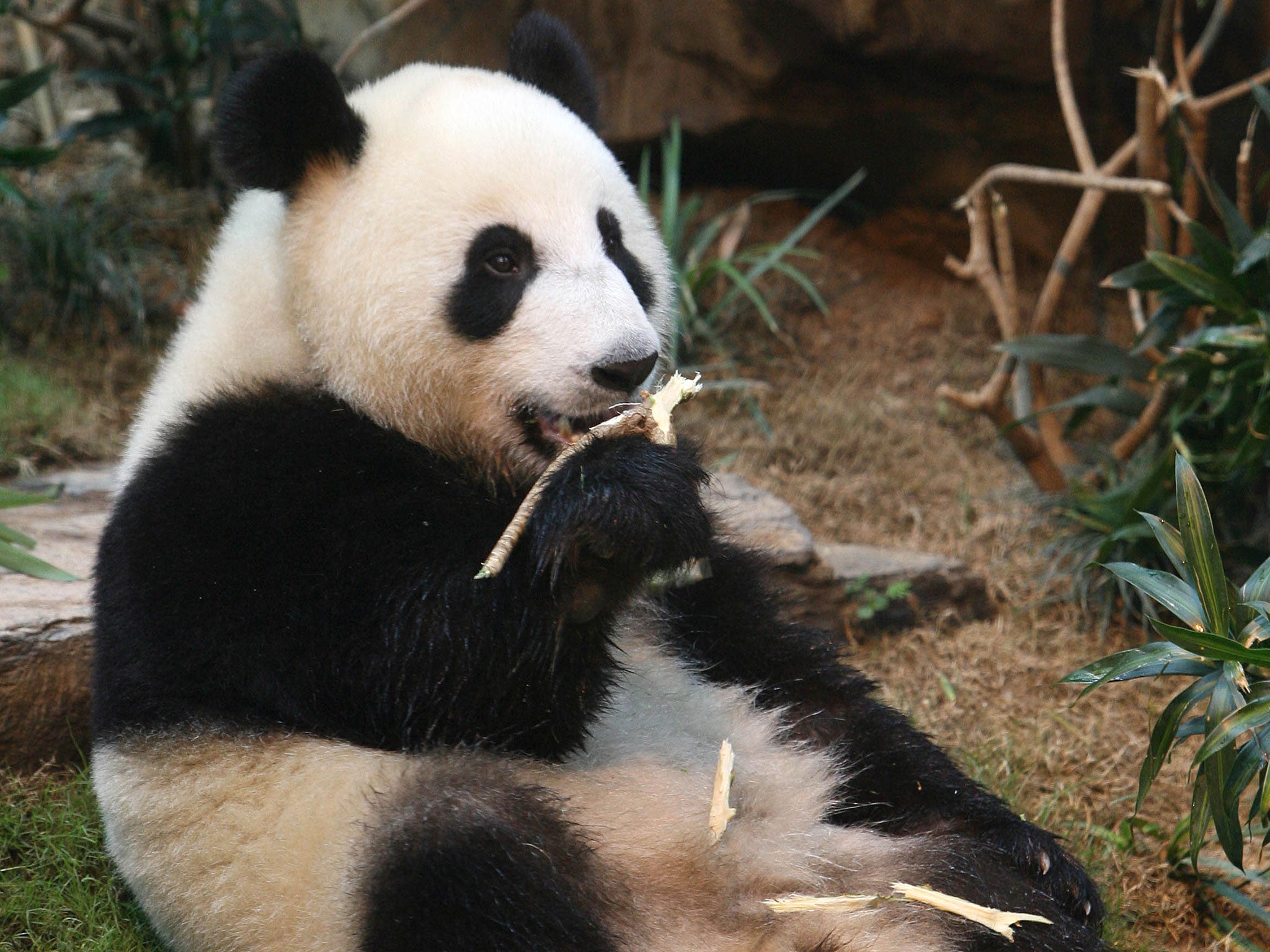Giant panda Ying Ying loses cub after 're-absorbing foetus' at Hong Kong zoo
Zookeepers said they did not know what had gone wrong during her pregnancy

A giant panda pregnant with the first ever cub hoped to be born in Hong Kong has suffered a miscarriage.
Zookeepers at Ocean Park were carefully monitoring Ying Ying’s pregnancy but ultrasound scans performed on Tuesday and Wednesday found no heartbeat.
Dr Lee Foo Khong, a vet at the amusement park, told the South China Morning Post that the 3.5cm-long foetus had been re-absorbed into the panda’s body.
“The foetal structures were no longer distinct and were breaking down, thus confirming the pregnancy is no longer viable,” he said.
“There is not a lot of information able to tell us what causes a foetus to stop developing."
Dr Wang Chengdong, of the China Conservation and Research Centre for the Giant Panda, told the BBC it is common for giant pandas to re-absorb the foetus into the womb in the late stages of pregnancy, "especially for first-time mothers due to their inexperience".
Officials are investigating what went wrong in Ying Ying’s 130-day pregnancy but say the 10-year-old was healthy and should be able to conceive again in the future.
Critically endangered species
Show all 10She had mated naturally and was also artificially inseminated as a precaution earlier this year after four years of efforts towards a pregnancy.
Tian Tian, the giant panda at Edinburgh Zoo, lost her cub after re-absorbing the foetus in August.
She and Yang Guang, Britain’s only two giant pandas, could be cloned as global efforts to boost panda numbers continue.
Giant pandas were once spread through China, Vietnam and Burma but are now endangered, with only 1,800 animals believed to remain in the wild.
Subscribe to Independent Premium to bookmark this article
Want to bookmark your favourite articles and stories to read or reference later? Start your Independent Premium subscription today.

Join our commenting forum
Join thought-provoking conversations, follow other Independent readers and see their replies